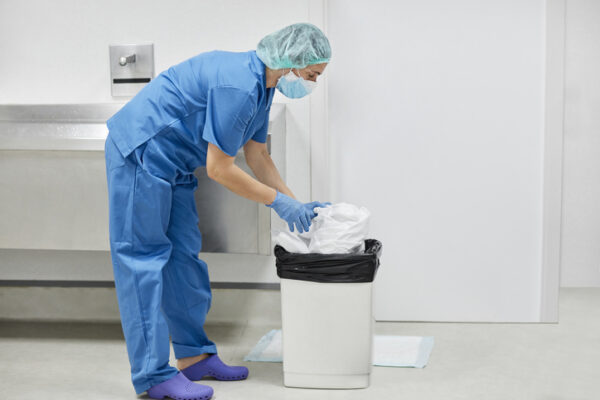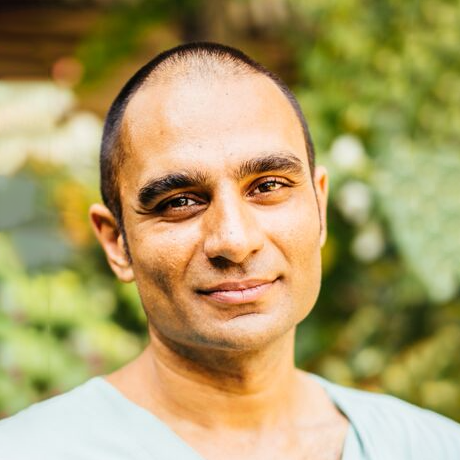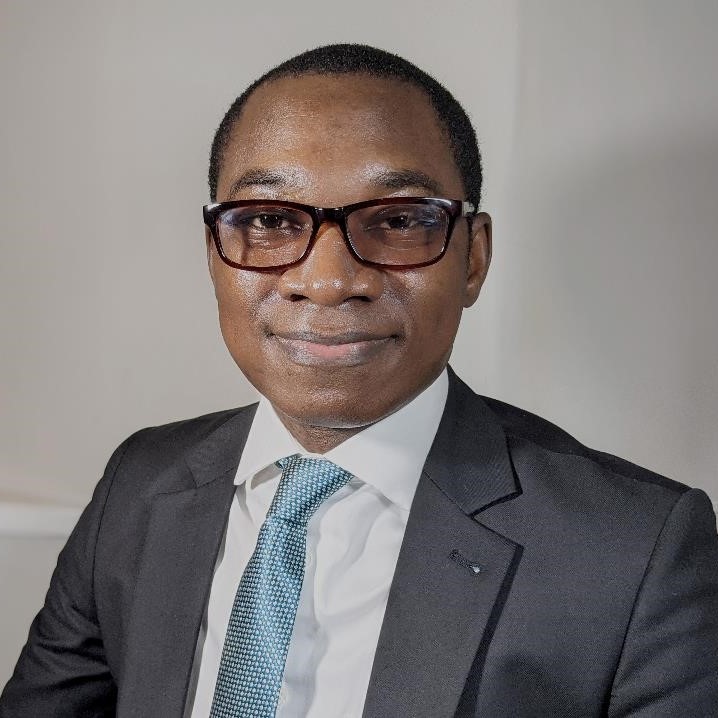Sustainable healthcare – one bin and endoscope at a time


We need to urgently know more about best ways to make healthcare greener. NHS organisations have less than twenty years to meet ambitious carbon zero targets. And the starting point is high – at present, the NHS accounts for 4% of England’s total carbon footprint. Our three research fellows, with different backgrounds and disciplines, are leading exciting projects to push this agenda forward.

`Do we need to change gloves every time we examine ears and throw away after use?’ Ear Nose and Throat surgeon Mahmood Bhutta is on a campaign to review practices which have become entrenched but may no longer make sense. He has a track record in changing hearts and minds, having led a successful national campaign to drive ethical purchasing of fairtrade medical supplies in the NHS. His fellowship project is looking at changes to the supply chain for medical products to reduce waste. This ranges from bringing back use of autoclaves and laundry services in hospitals for re-use of surgical equipment or drapes to identifying products we don’t need. His fellowship will allow time to consider the complex parts of the system needed to deliver greener hospital services, from procurement to facilities and estates. But change will also need action and drive from clinical staff. An important part of Mahmood’s research is qualitative enquiry to understand drivers and barriers to change. Mahmood tells me that clinicians want hard evidence to show that re-laundered gowns or multi-use endoscopes are as safe as single use. But they also need motivation to make that change happen.

Some practices which are environmentally harmful have developed since the pandemic. Another of our fellows, Kurannen Baaki with a background in facilities management, is looking at sustainable waste practices in hospitals. He found that the threshold for what counts as harmful clinical waste lowered radically with fears of infection risk from COVID. Infection control precautions have dominated thinking on waste leading to practice which may now need review. His research based in two hospitals includes literally examining contents of bins. His bin audits showed for example party balloons and packaging with soiled and likely infectious dressings. He also found not a single recycle bin for public or staff use in any of his hospital visits. Most waste simply went into the compactor onsite. Small changes can make a difference. Hospital systems and facilities have not been organised with greener practice in mind.

Much of healthcare is delivered in old buildings which need adapting to withstand current and future climate challenges including extreme heat or flooding. Our fellow, Federica Pascale, has a background in architectural engineering and worked across Europe to future-proof hospitals against earthquake shocks. She brings this expertise to work with hospital sites in England. Her fellowship project works with estate, management and clinical staff as well as patients in three localities to agree what `best’ looks like and then work backwards to identify steps that can be taken to make hospital buildings more resilient to future shocks. These participatory approaches will help not only with identifying solutions but buy in for change to happen.
We all know the importance and urgency of the climate crisis. But the immediate pressures of services under increased pressure with longer waits, increased demands and staff shortages can overshadow longer term agendas. New research on sustainability suggests that greener practices can also be cost-saving while improving patient outcomes and experience. In this way, environmental sustainability is a key element of quality. Our three research fellows are leading the way in advancing knowledge to help NHS organisations make the right choices for greener and better services.
To hear more from our three fellows and their projects, as well as latest policy developments from the Greener NHS team, register to join their session at our free virtual event.